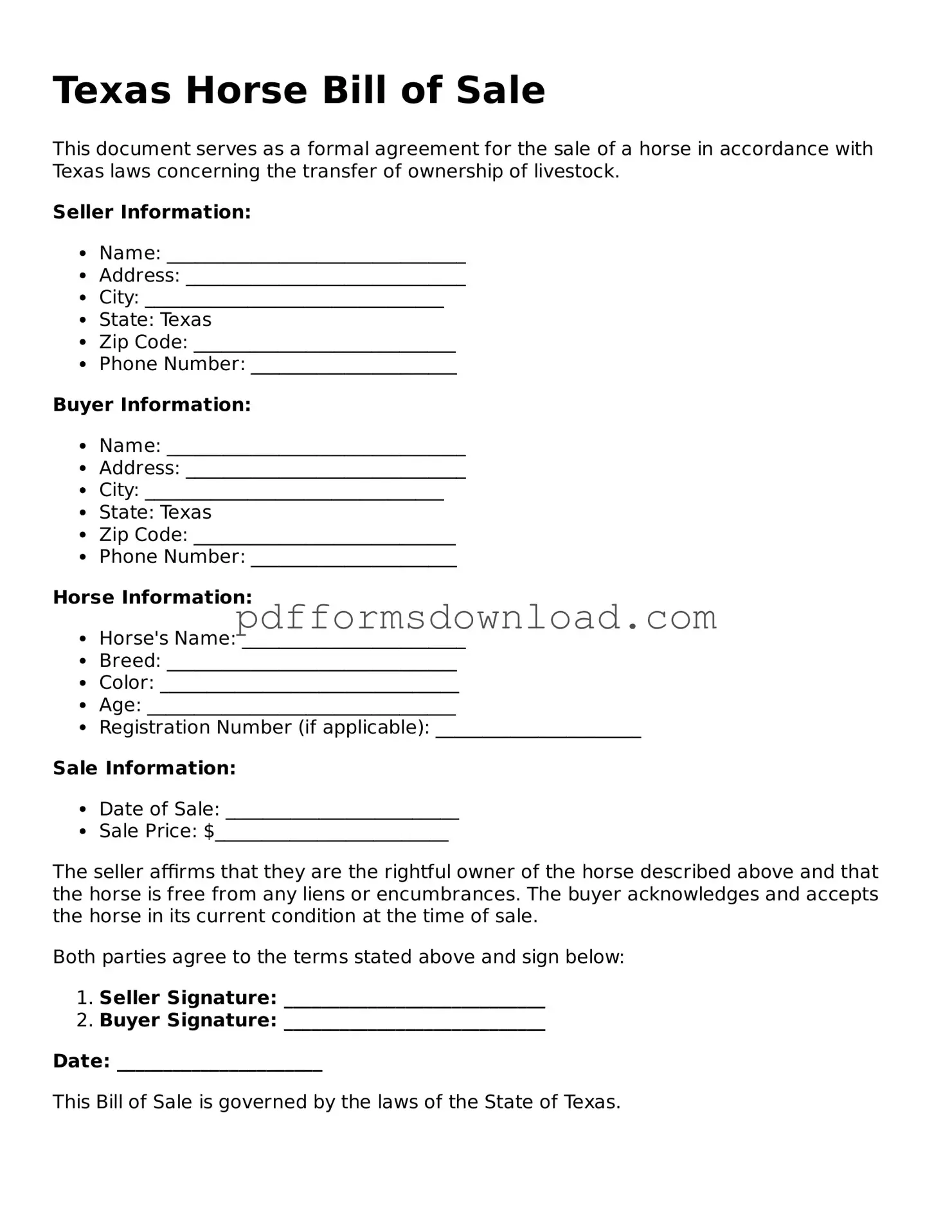Printable Texas Horse Bill of Sale Form
The Texas Horse Bill of Sale form is a legal document that records the transfer of ownership of a horse from one party to another. This form ensures that both the buyer and seller have a clear understanding of the transaction and protects their rights. To facilitate this process, consider filling out the form by clicking the button below.
Make This Document Now

Printable Texas Horse Bill of Sale Form
Make This Document Now

Make This Document Now
or
Free PDF File
Your form is almost ready
Complete your Horse Bill of Sale online — edit, save, and download easily.